British Football
How is America's national sport being taken up in Britain?
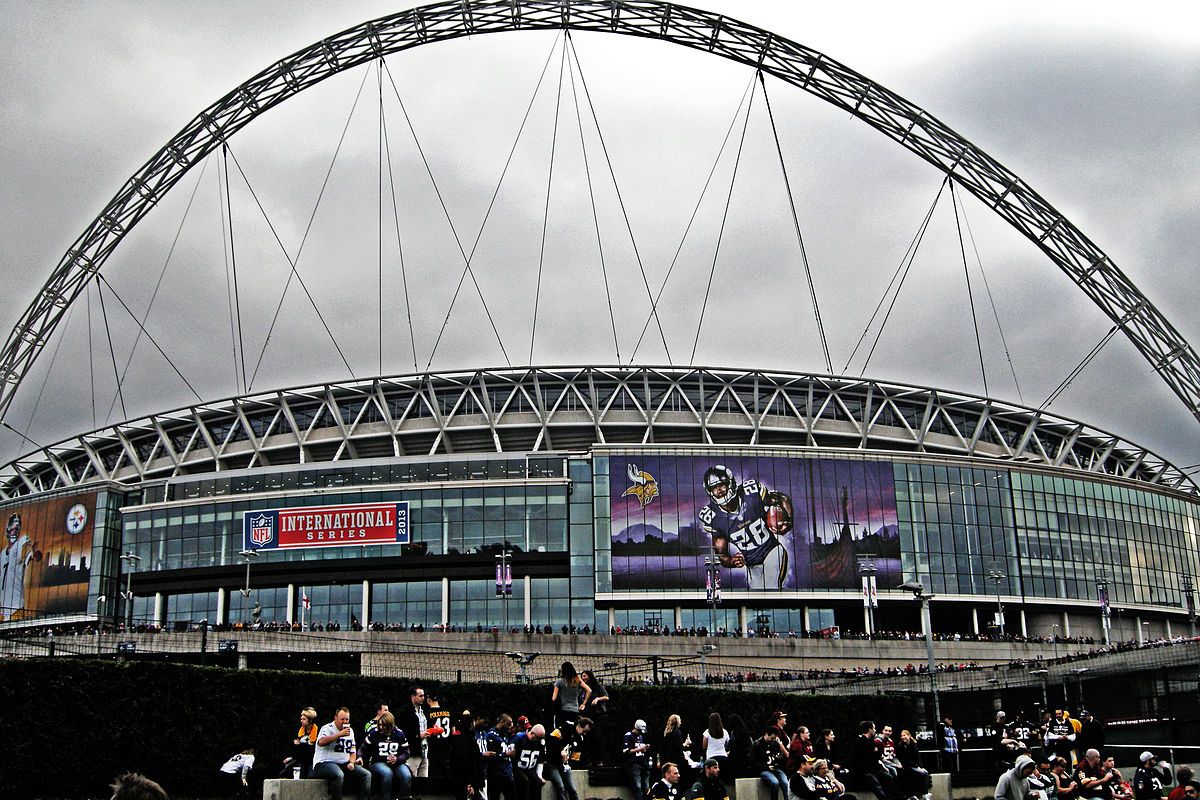
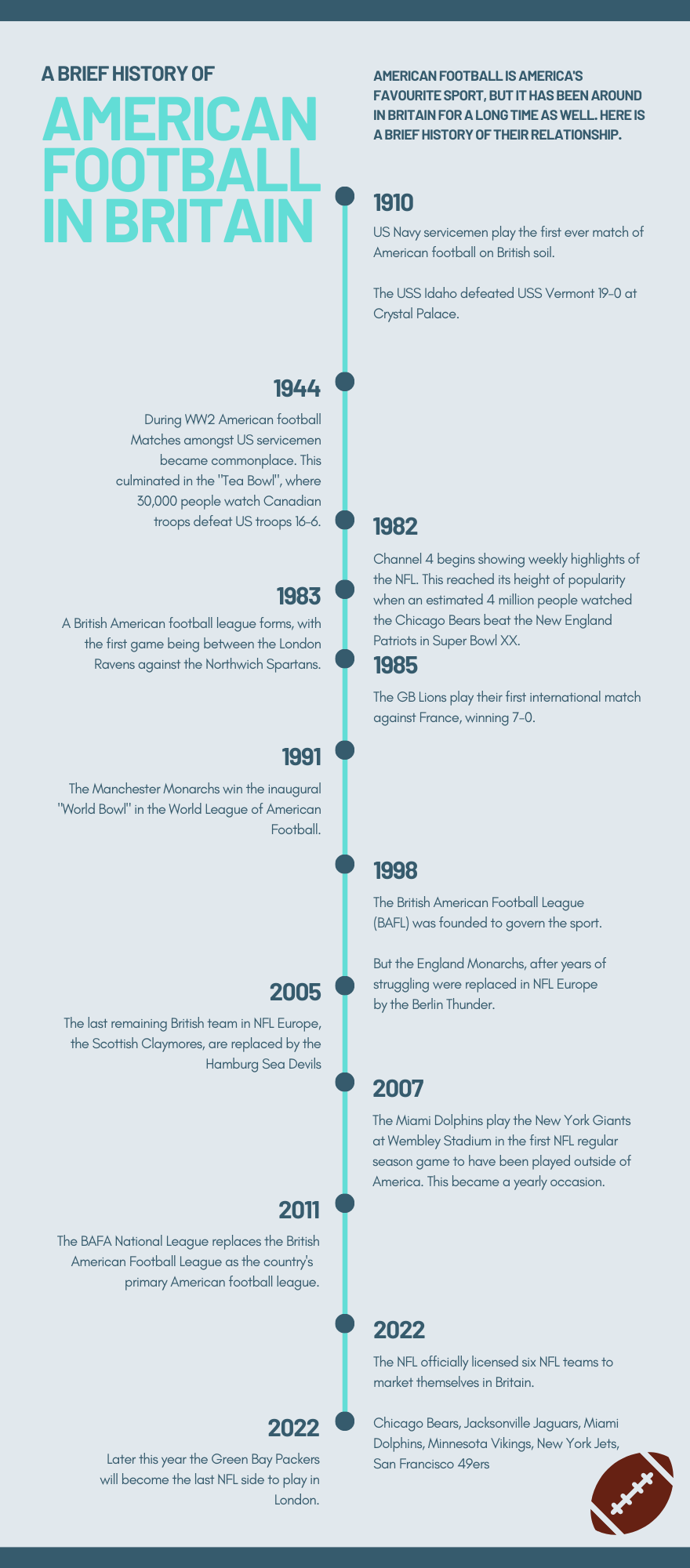
Britain can date its relationship with American football all the way back to 1910, when the Daily Mirror sponsored a match that saw US Navy servicemen from the USS Idaho triumph 19-0 over the USS Vermont in front of a crowd of 10,000 at Crystal Palace.
Nowadays there is a huge interest in America’s favourite sport on this side of the Atlantic, as a record 1.3 million people watched the LA Rams beat the Cincinnati Bengals live on the BBC earlier this year.
The commitment goes further than sitting in their own living room, over 80,000 people have watched the NFL International Series games at Wembley every year from 2007 to 2019, when Covid stopped this sequence.
There are even British players to root for in the NFL, former London Warriors defensive end Efe Obada was a big part of Amazon Prime’s All or Nothing: Carolina Panthers and now plays for the Washington Commanders.
Then in this year’s NFL draft, David Ojabo, who lived in Aberdeen for 10 years, went in the second round to the Baltimore Ravens, and likely would have gone higher were it not for him tearing his Achilles during his Michigan pro day.
But how far has this growing love affair with American football actually gone? Has watching the Jacksonville Jaguars lose in London every year put people off taking up the sport? Or has it made them realise that just about anyone can play?
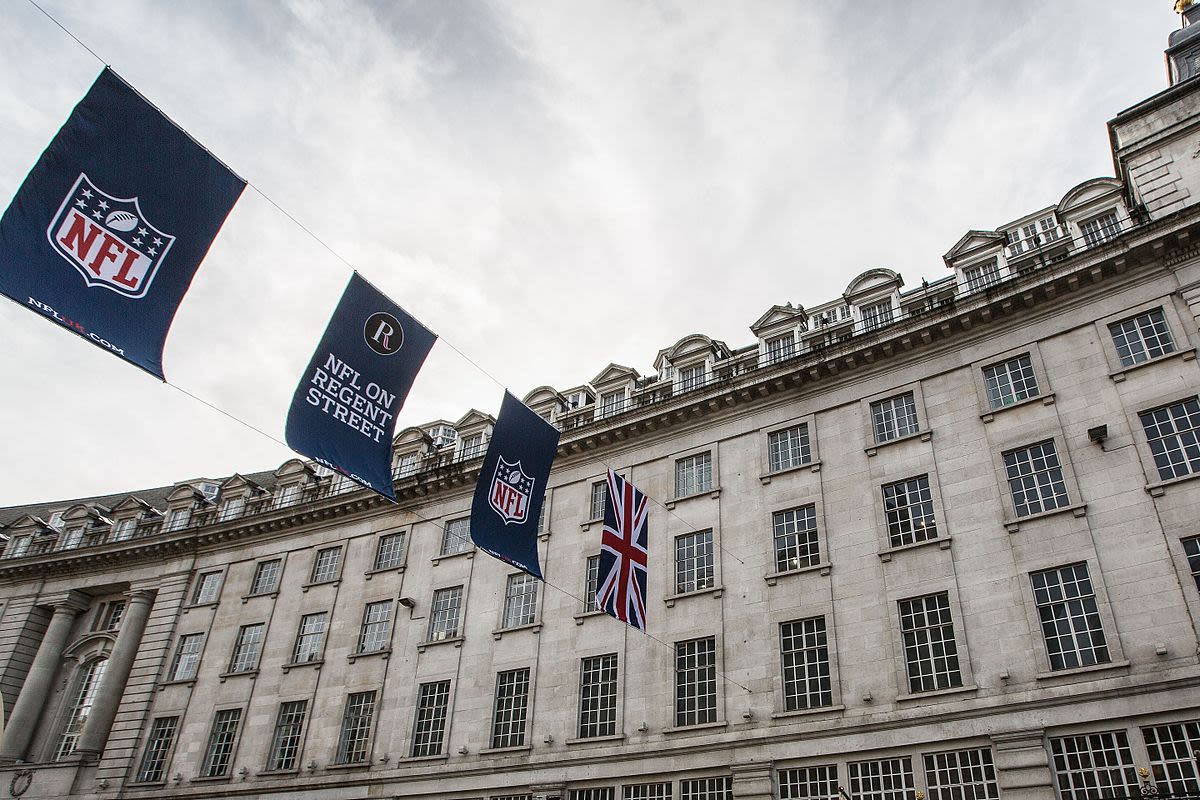
KCL Regents
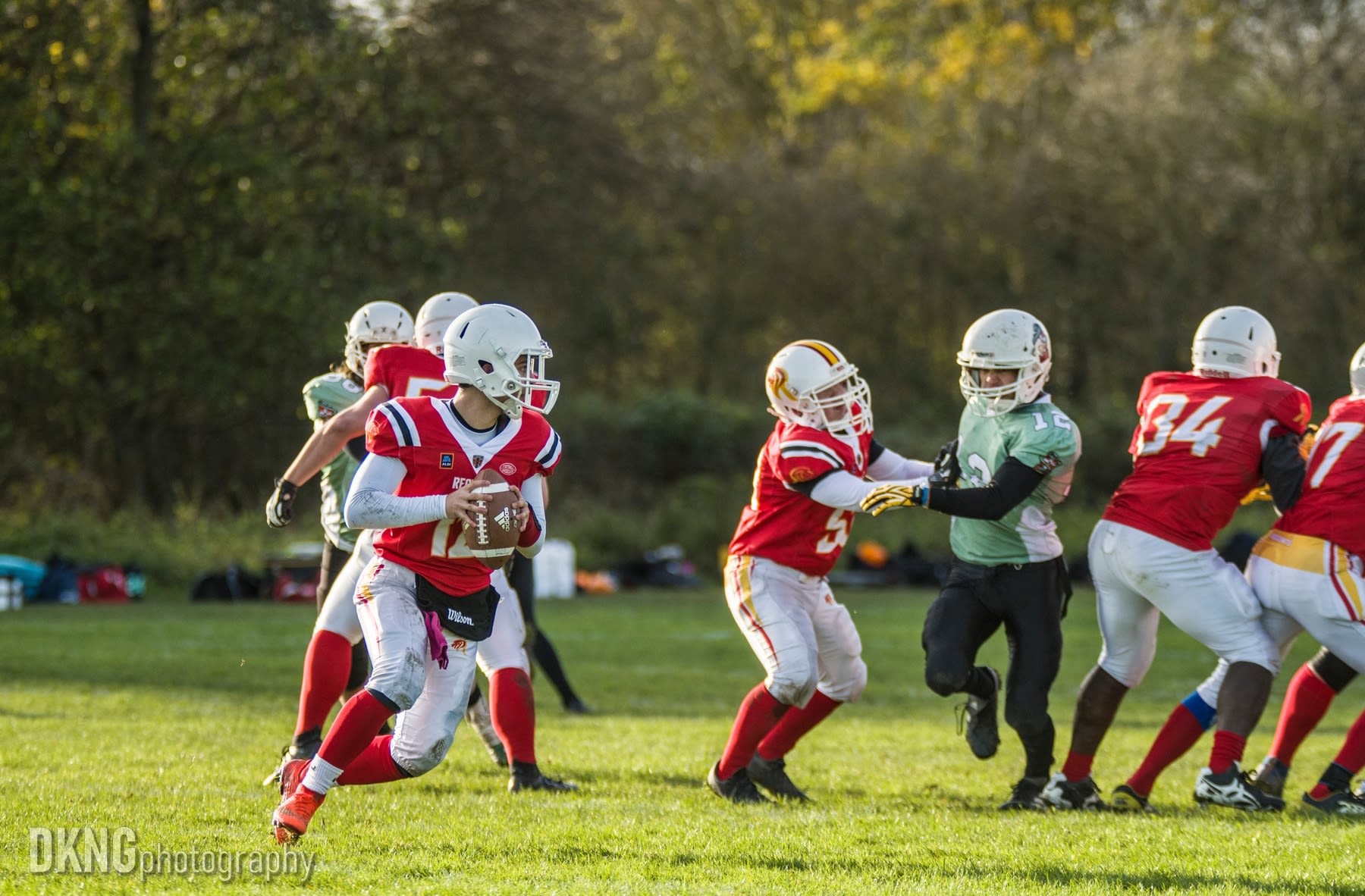
College is where American football becomes serious in the States, but in Britain it is actually where most people’s journeys begin.
Over 80 UK universities compete in the BUCS leagues, with 4320 students taking part, and one of those universities is King’s College London, with their team, the Regents.
Their newly elected society Vice-President and defensive lineman, Omid Zarei, spoke of how he did not even know the rules of the sport before joining the team in his first year.
He said: “I previously played football and basketball to a relatively high level before I came to university, but I was doing them for so long that I fell out of love with both of those sports.
“I knew that I wanted to try something new when I came to university, and I'm quite a big guy, six foot three and about 90 kilos, so I was looking at the list of clubs and I thought American football seemed fun, I'll go down to a training session.
“Straight away everyone was really warm, really welcoming, and willing to teach you everything right from the beginning.
“In our first our first game of the season, I didn't even know how many points a touchdown was worth and I was playing in it.
“I feel like it's most common for people at university to have started in their first year and that is the case for the majority of people that I've met, they start in their first year and end up falling in love with the sport.
“It's not like rugby, where you've got five different teams and each has loads and loads of people in them.
“We have about 40 guys who are all really close and it's sort of like being in one big family, there’s a real sense of unity on top of playing the sport itself.”
Despite thoroughly enjoying his experience playing American football, Zarei said that there is a stigma from others that those who play it are Americanophiles.
He said: “We don't get a massive crowd, it's usually our friends and family who want to come down to watch us, you don't really get neutrals coming down because not that many people are interested in American Football.
“We do get a couple, you get a few of the Americans students who do come down and watch.
“Whenever I tell someone I play American football, they're like, ‘you're not American, why are you playing American football?’ Which is so irritating.”
“Obviously American football originated in America and it's got America in the, but it is played all over the world.
“Perhaps not as widely as regular football or basketball or even tennis, but American football is still a sport enjoyed all over the world.
“I think a lot of people assume that we want to be like Americans, that we talk like Americans and have funny accents, but we don't but we just really love the sport.
“It starts at that and it stops at that, it's got nothing to do with us wanting to adopt American culture.”
London Warriors
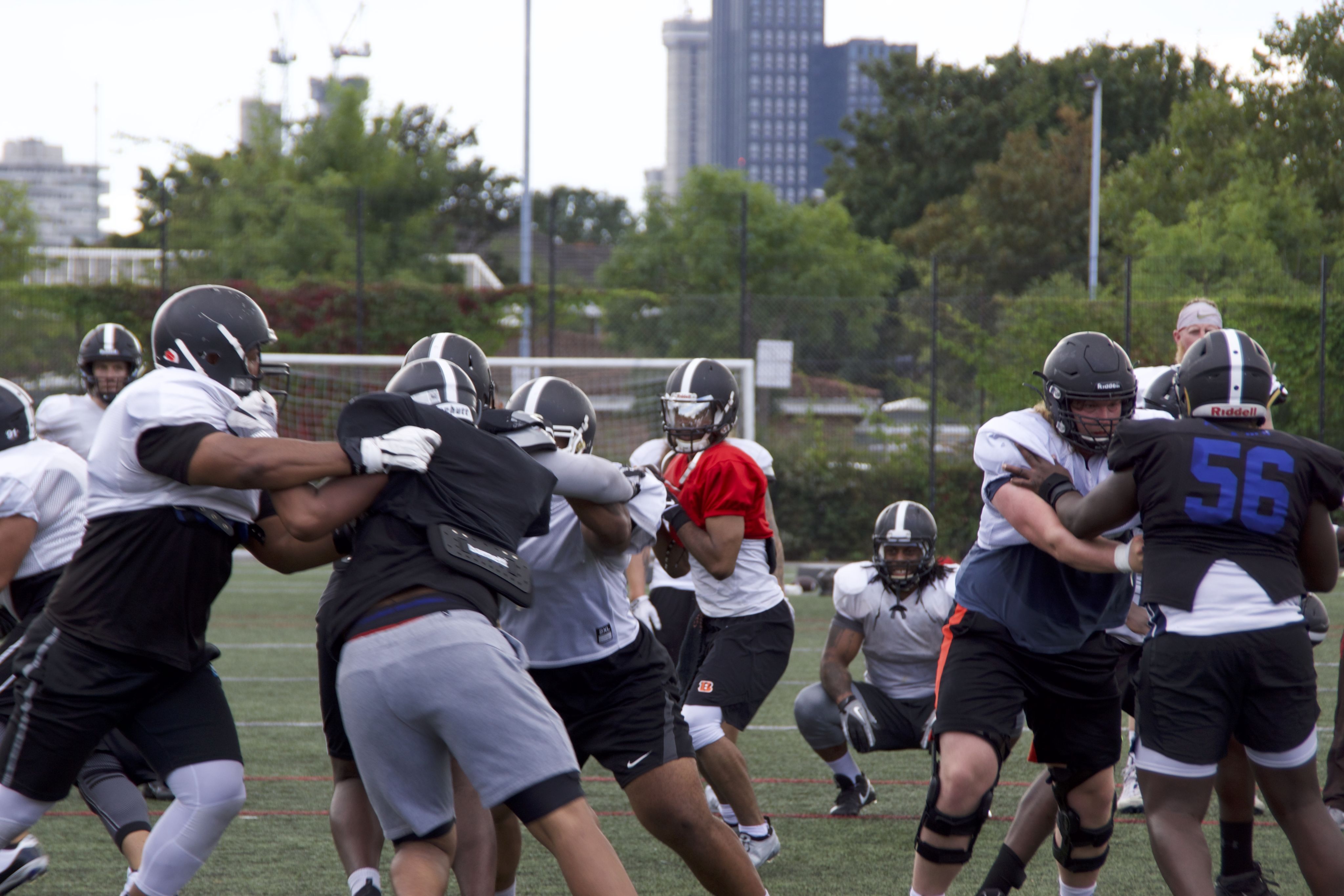
The London Warriors have been around since 2005, originally starting out as a youth outfit in the Croydon area, before starting a senior side in 2007.
They were three-time national champions at youth level before moving on to the senior game, where they have been crowned British champions on six occasions in 15 years.
Simon Buckett is their General Manager and has been with the team since they moved into the senior game and has seen an upturn in interest over the years.
He said: “When we started, it was very much about getting kids in the local area involved, as there was a push to get kids off the streets and out of gangs and we are doing what we are doing to try and help that.
“We're based out of Selhurst South London, Croydon area there's a lot of crime around there, and we have people from all walks of life.
“I have definitely seen a drop off in the last two years of people playing, for obvious reasons. And it's also not the cheapest sport to play right, which makes it difficult at the moment with the cost of living crisis.
“Saying that there's definitely interest, when you've got things like the NFL Academy based up in North London and when you've got NFL games coming to London, the interest increases.
“People say ‘Oh, I'm going to give that a try’, and our women's team do a great job with recruiting.
“We think in the programme we have somewhere between 200 to 300 people, be that players, staff coaches, medics, and all facets of what we have.
Playing for the London Warriors is also where Washington Commanders defensive end, Efe Obada, was discovered, who became the first player to move directly from a foreign league to the NFL.
Buckett said: “Efe came to us from nowhere essentially, he was brought along with another player who said you want to try it out when you come down.
“Efe was an athlete and when he turned up you kind of look at his body shape and say ‘athlete’ and he was just different gravy.
“I've never seen anyone that size move that quickly. And his willingness to work and learn was very impressive. And something you see today when he's a pro he still first on the practice field and the last off if you listen to the quotes from his coaches.
“A lot of our players think they are Efe because they're the same size or they can bench the same or they can run fast. It's not it's not about your metrics, it's not about your stats, it's about being an all-round player.
“At the moment I don’t think we will see another Efe. I haven't seen anyone that's anywhere near him, I think the next ones will come out of places like the NFL Academy.
“They have some unbelievable players now. They're doing a great job of coaching those kids, and their results are speaking for themselves.
“So if you're playing under 16 contacts with the Warriors, one of your ambitions might be to get the NFL academy or perhaps even the European League of Football.
“Efe was one in 100,000,000. He was in the right place at the right time, but also had the right coaches around him and was recognised by the right people.
“When that happens once, all those who found him think about how we put a process in place to make sure we find these people properly and not by accident.”
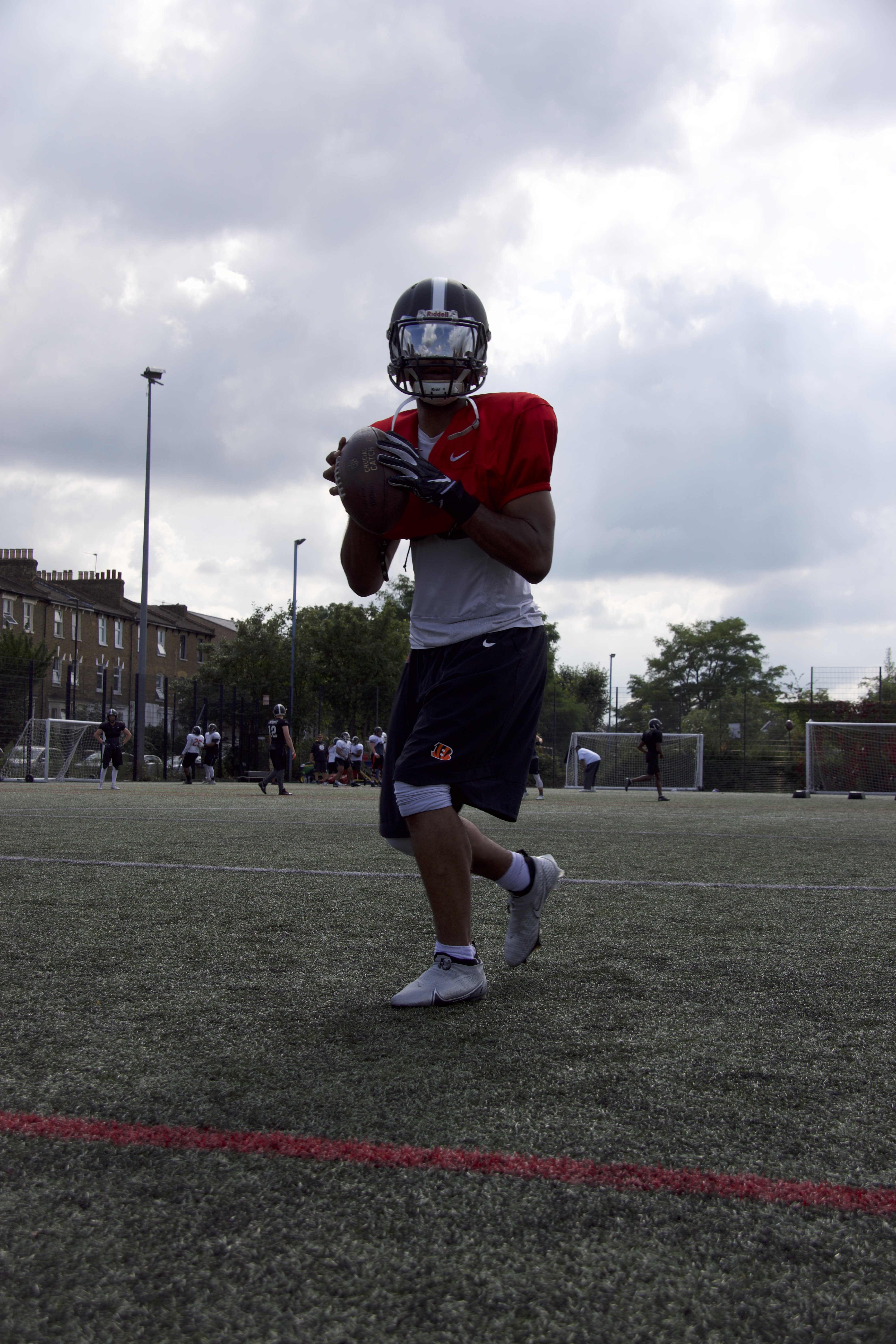
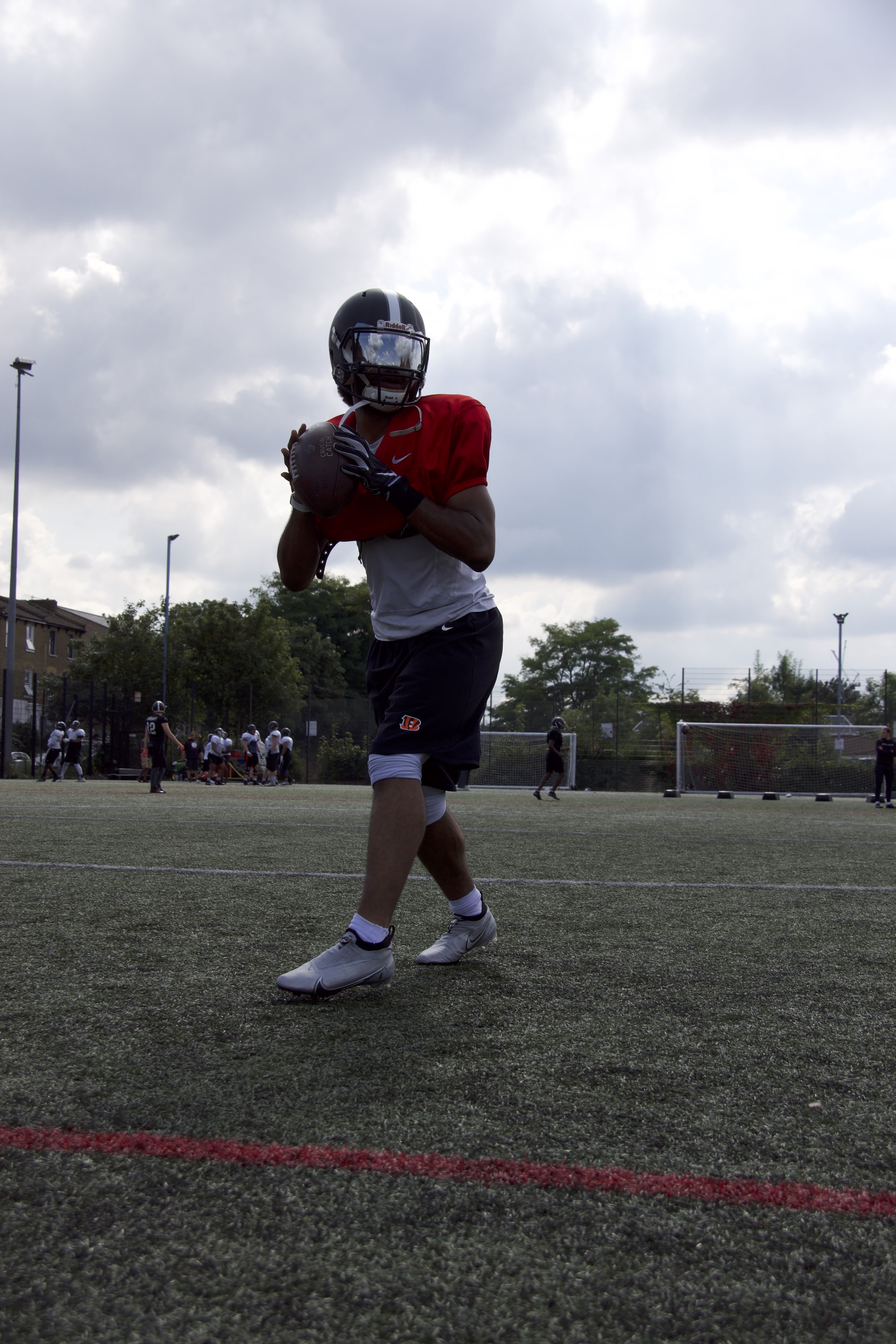
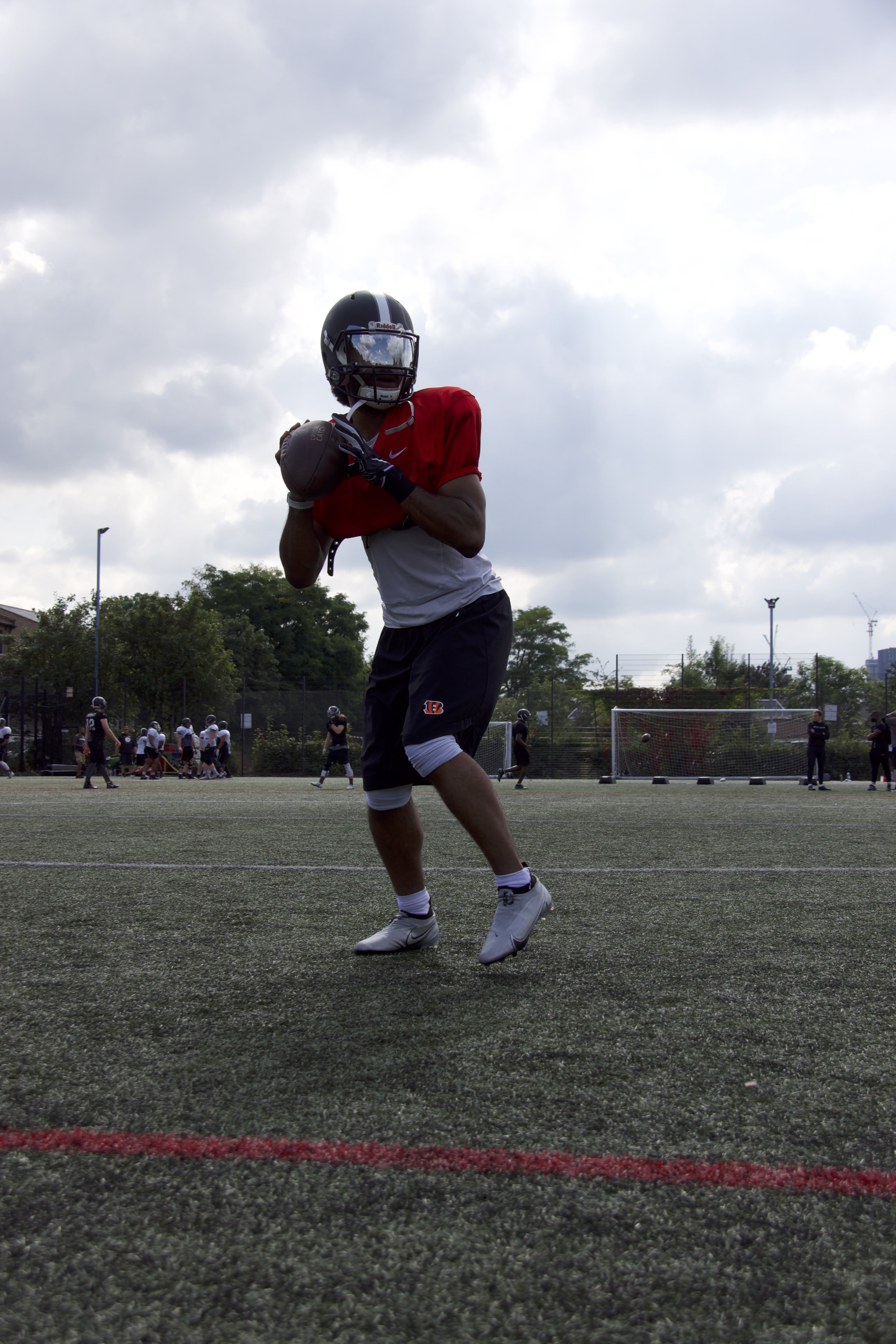
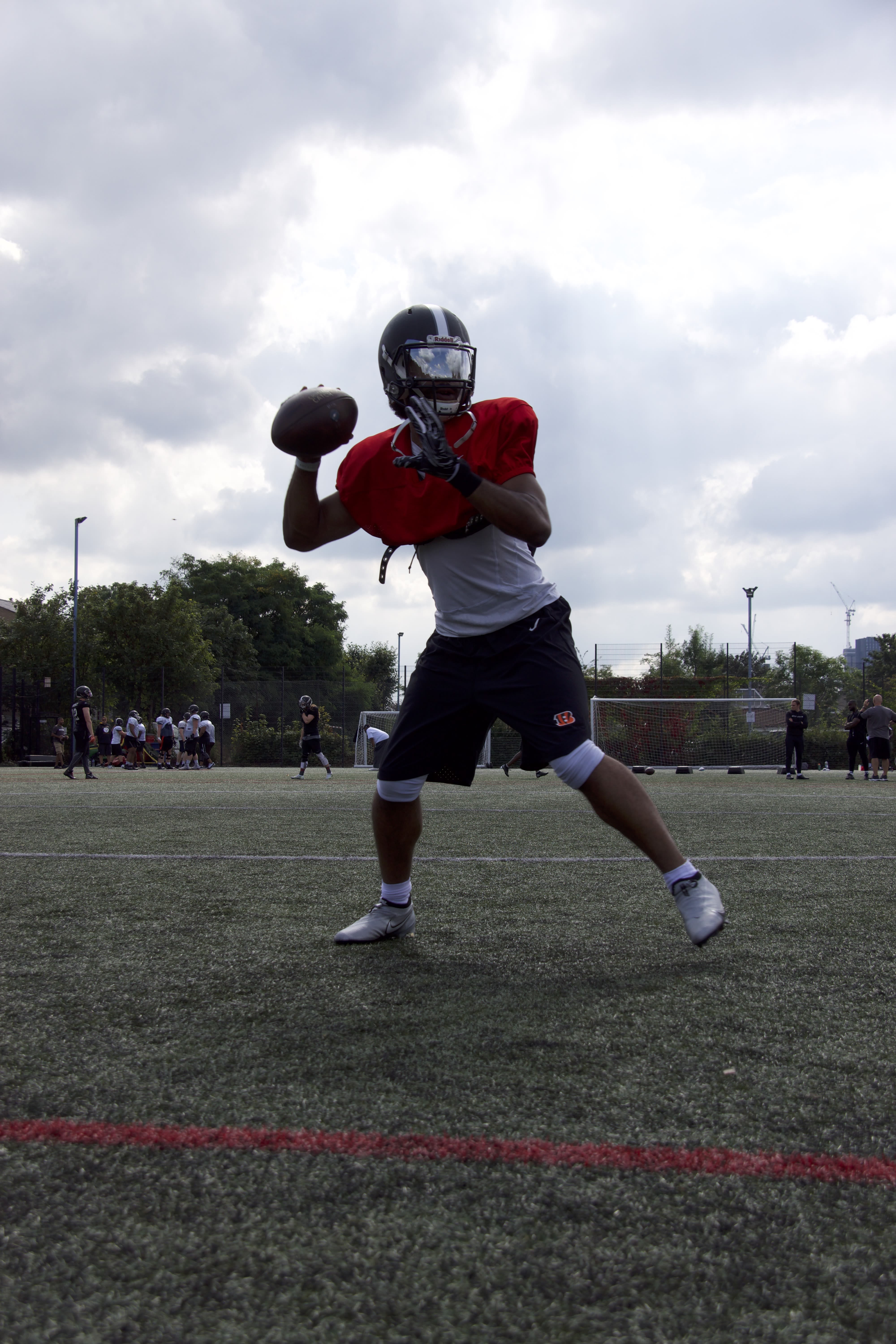
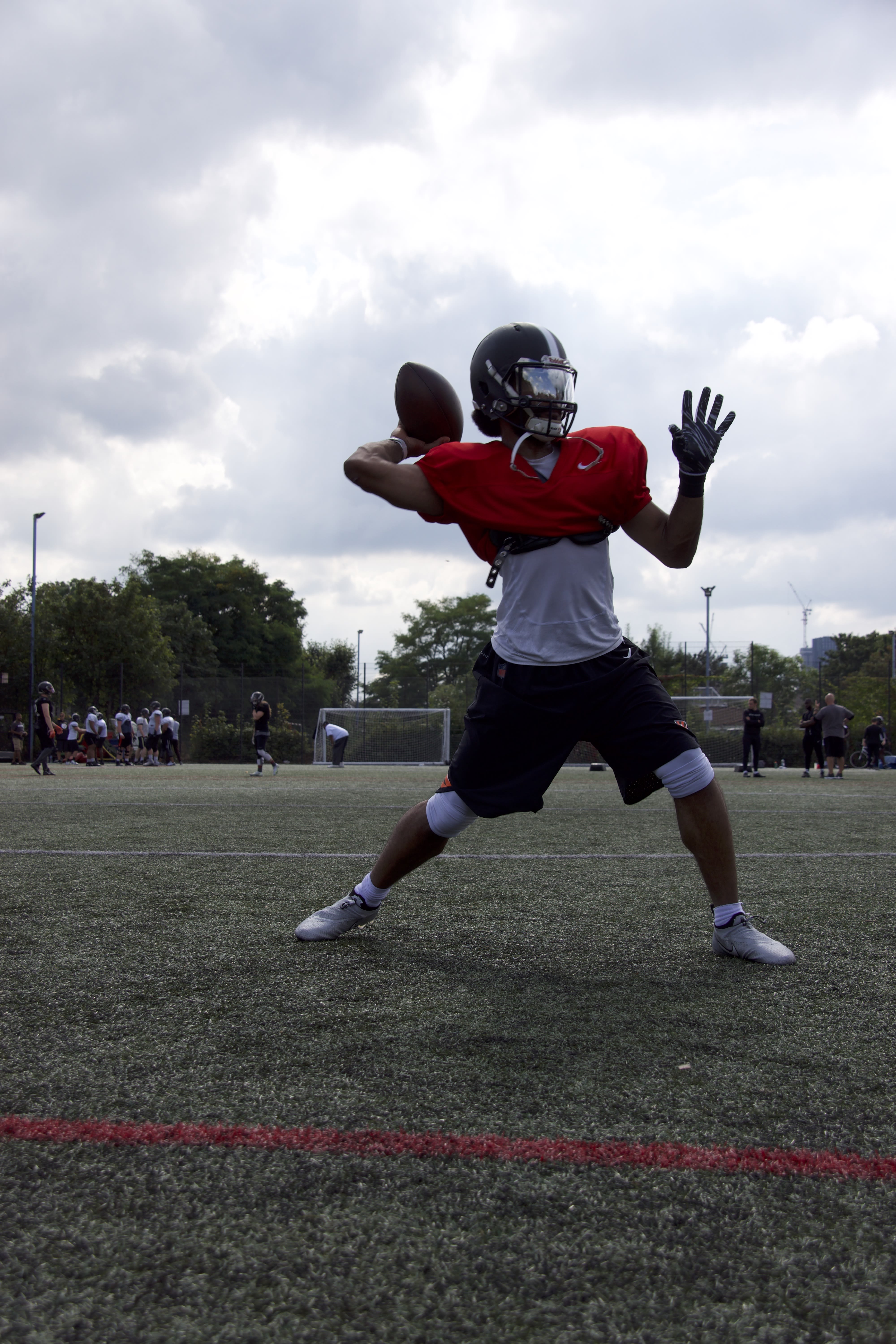
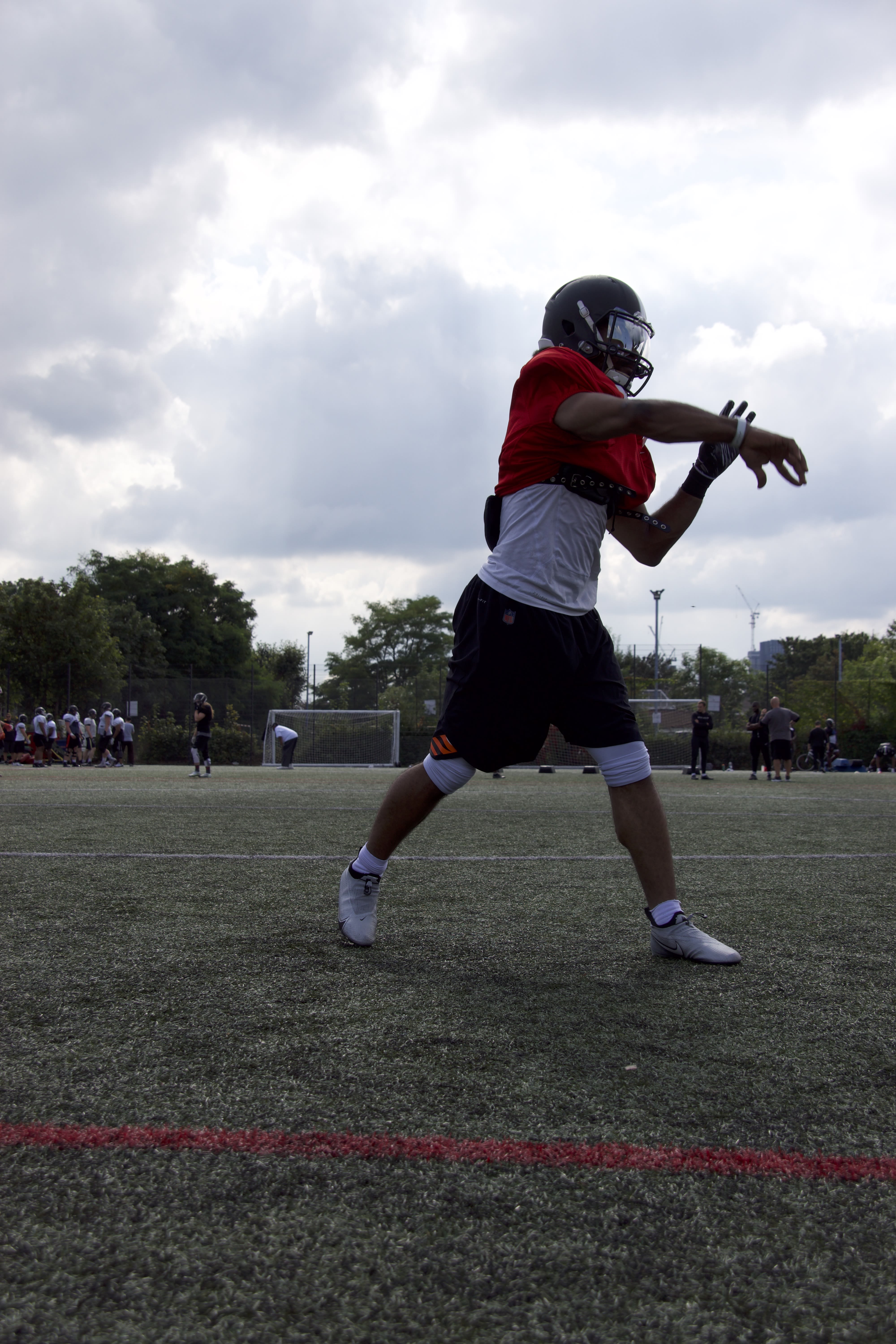
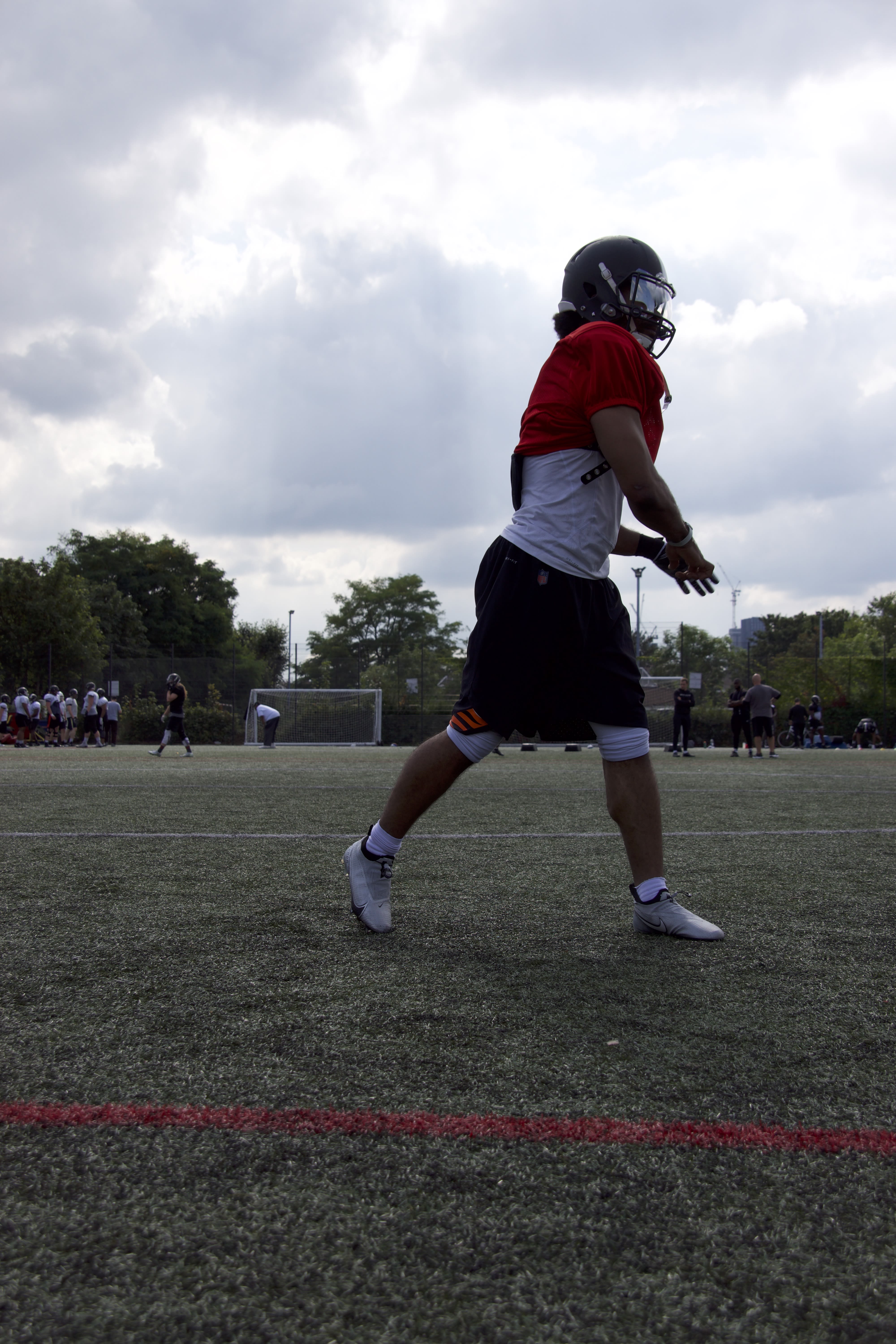
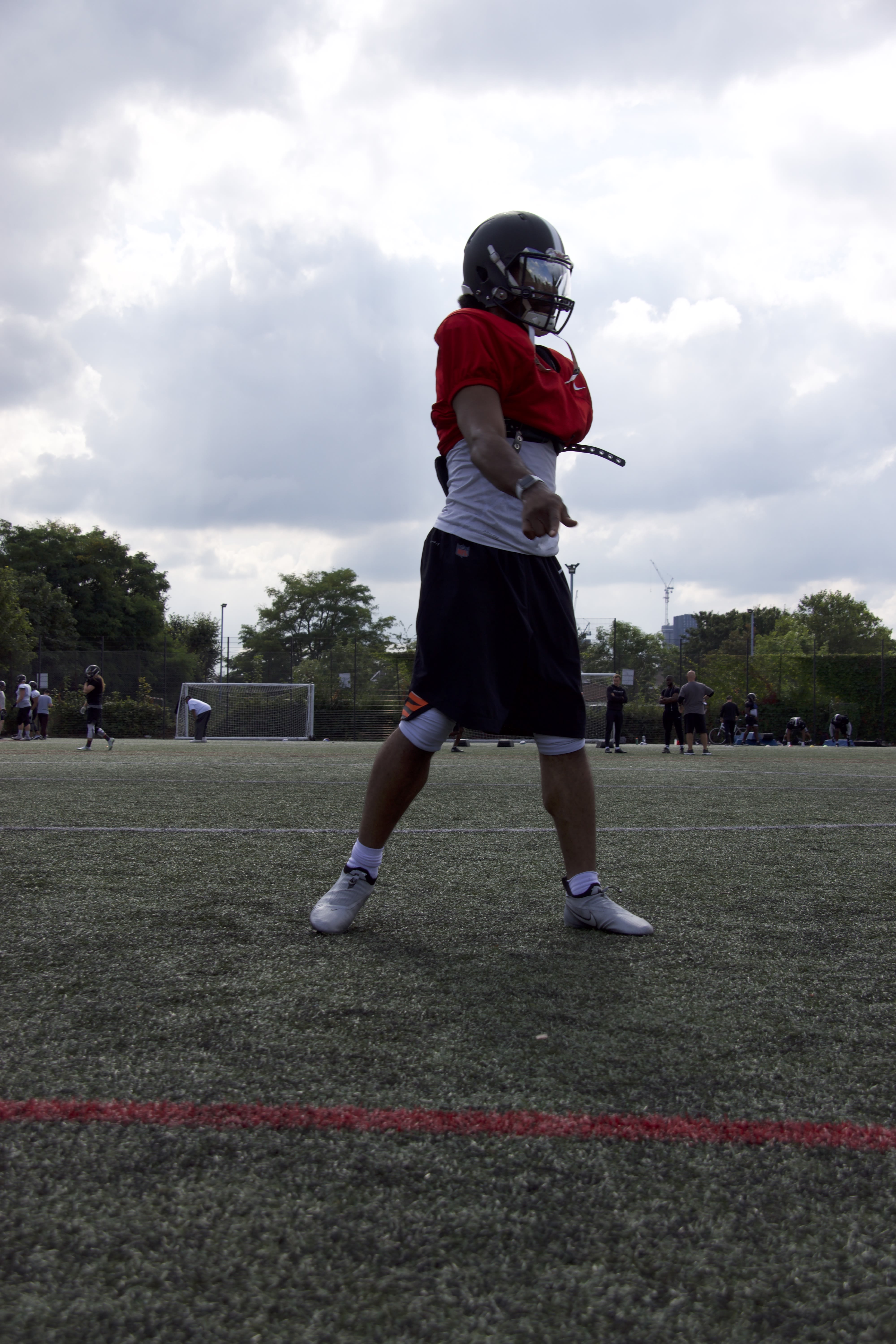
London Smoke are a flag football team based in Clapham Common, who became King Bowl champions for the second time on 1st May, which is one of Europe’s biggest flag football competitions.
Flag football is, in essence, the American football equivalent of touch rugby, as it takes away the contact element of the sport.
On a more regular basis they compete in BAFA’s flag football Southern Premiership, and run multiple adult teams to cope with the demand.
Team captain Charlie Williams said: “A friend of mine and I really liked American football, when we were about 15, 16, and we really wanted to play for our University teams, so we trained together in the school holidays, for years, then we went to different universities and played contact for three, four, five years.
“Then when we moved back to London, wanting to carry on, we started a flag team to play in the London midweek League, we didn't really know about the National League and international tournaments.
“So about three or four years after training just for the London League, we then signed up for the main league and just started winning essentially.
“I think the sport is growing enormously. For years, we could only get five or six people down to train on the weekend.
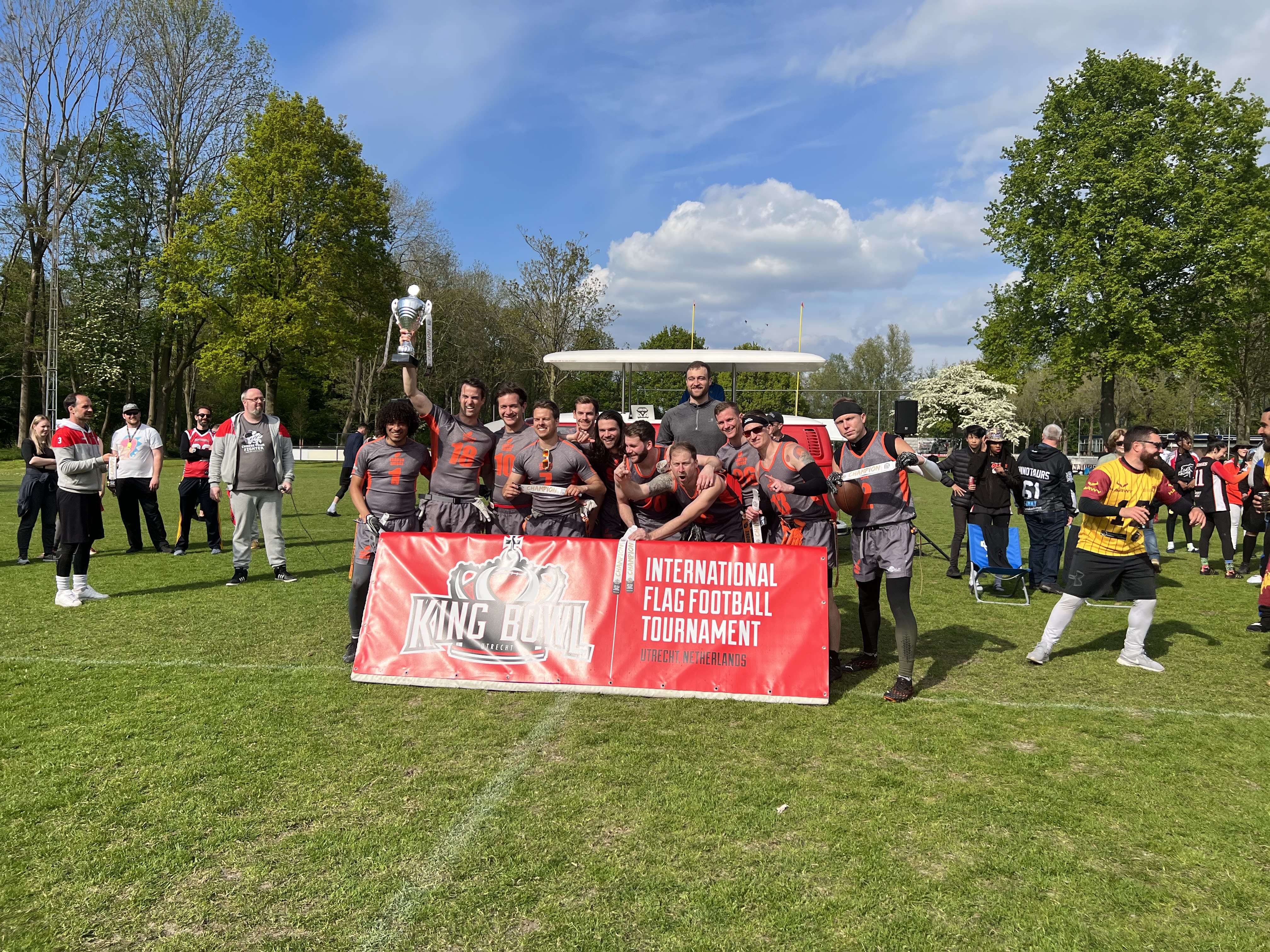
“We would train on a half width pitch, but now we get 25, 30 down every week and we set up two full size pitches. We have a second team also in the national leagues and 2-0 at the moments, so we are doing well.”
Williams believes that the growth his team has experienced would not be typical of most teams, due to the success of the team on the field and marketing off it, they have managed to grow rapidly.
He said: “I think when we starting winning some tournaments in 2018, both national and international tournaments, and after that the growth followed.
“I think that it helped our profile when we set up our Facebook and Instagram accounts. We started putting flags up on Clapham Common saying ‘come and join us’ and people would just walk up to us.
“It was very gradual. I mean, this year has been enormous. Last year, we could only just support a second team whereas now we are even thinking about a third team.
“We're actually really fortunate that some players who live in Cambridge or Kent or Oxford, even though there are much closer flag teams to them, they want to travel an hour and a half for the weekend.
“They come and train with us and play with us because they want to do these international tournaments, and compete for the national championship.
“Our London Smoke Whatsapp group has 142 players in it now, which is incredible. Although because of different levels of commitment and people away we typically only get about 25, 30 down to training each week.”
What is holding American football back?
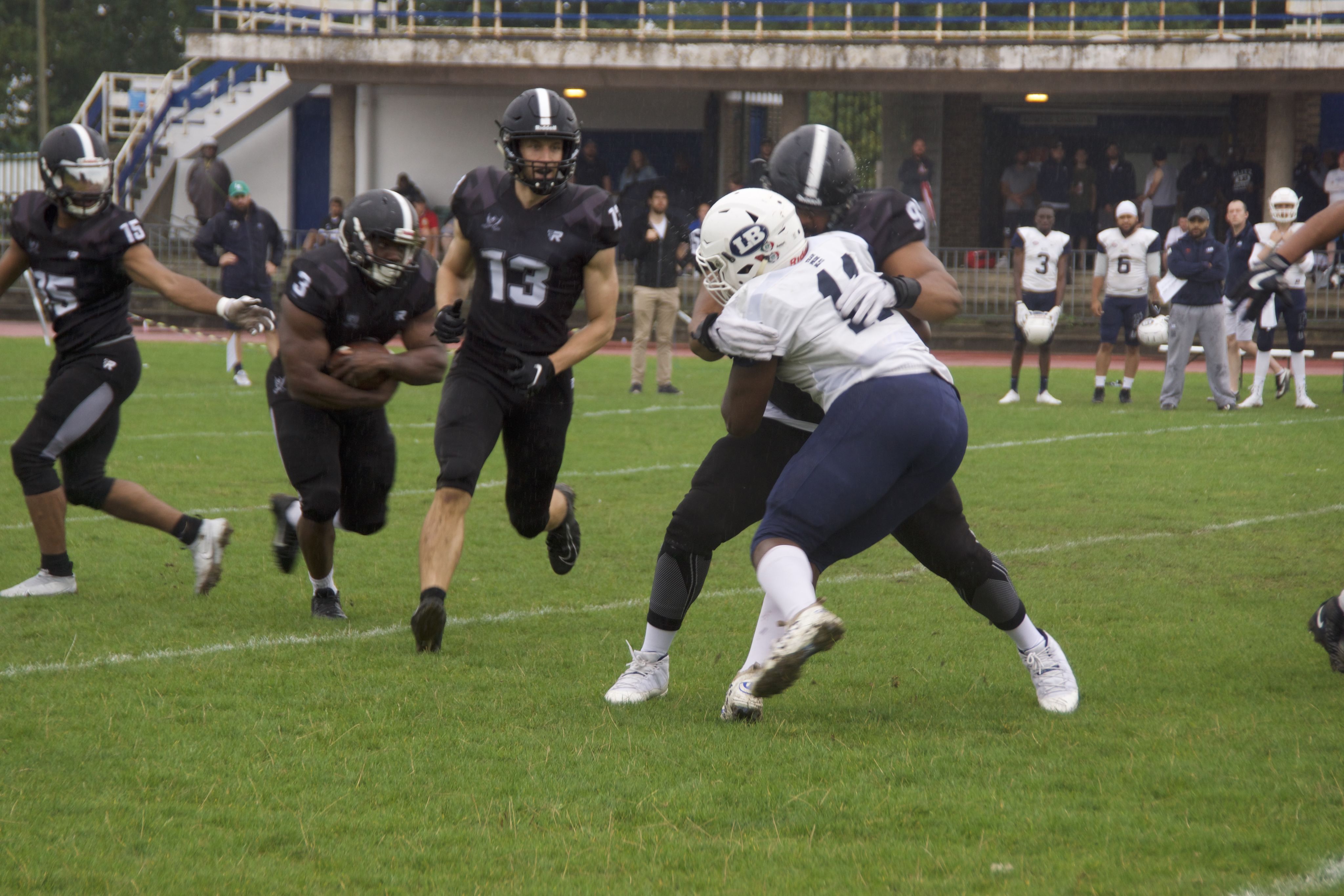
So clearly there is a strong American football culture in Britain, with many different people of all ages enjoying playing the sport.
However, there was a theme that cropped up a few times about something that holds American football back from becoming even more mainstream, and that is the cost.
Regular football is famously very easy to play, all you need is a ball, but the cost of equipment can get very expensive when playing full contact American football.
Buckett said: “It's not the cheapest sport to play. So in the current climate, where cost of living is going up 10% it becomes quite difficult to recruit players.
“For the kids, we provide the equipment so we have a lot of cupboards full of pads and helmets, a lot of which needs replacing the moment, so we're trying to get funding in from anywhere we can because they are not cheap.
“A helmet can cost 300 pounds a set of pads can be two hundred pounds, and so for the under 19s and below, we provide kit the seniors are expected to provide their own.”
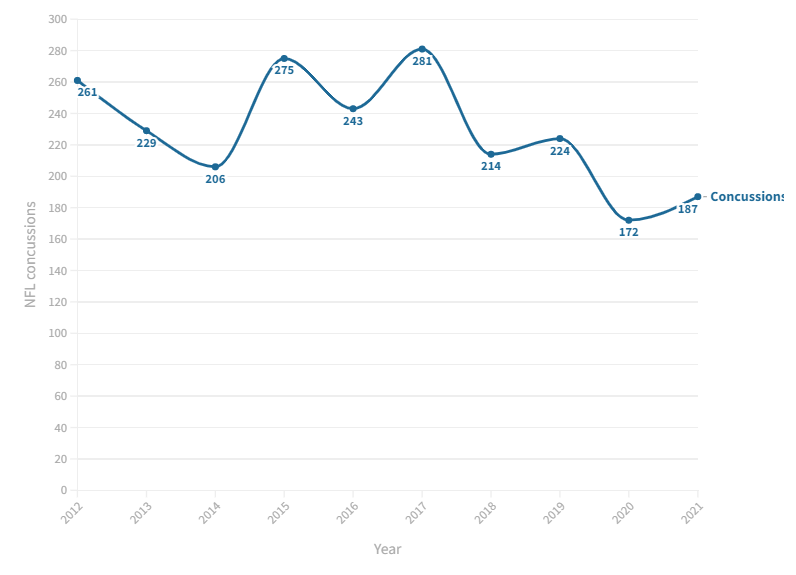
Williams also intimated that one of the reasons behind him switching from full contact to flag football was because of the injury risks associates with playing American football.
He said: “A lot of us, including myself, used to play full contact. But with flags, we can play all year round, on consecutive days without the concussions and the broken legs which I used to get in full contact.”

This view was brought up again by Zarei when taking about what made it difficult for him to play as a student.
He said: “If someone asked me to get the best top to bottom uniform you can, I would say ‘give me a grand.’
“And the equipment is very important for protection, I am studying neuroscience and when I was a year 13 I wrote a 5000 word dissertation-style essay on how contact sports lead to neurodegenerative disorders.
“The study I looked at said that of the of the 3000 NFL players and former NFL players that were examined, something like 96% of them went on to develop neurodegenerative disorders, which is obviously very scary.
“But that puts emphasis on the need for protection and all of these things, but when it's so expensive, you do think why invest in a good helmet when I can't afford it?
"Fortunately the university supplies that, but for most of the BAFA league teams you would need to buy it.”
Photo Credits
Featured image credit: Teo's89 https://commons.wikimedia.org/wiki/File:Wembley_Stadium_NFL_Int%27l_Series_2013.JPG
NFL on Regent Street, Tony Webster https://commons.wikimedia.org/wiki/File:Wembley_Stadium_NFL_Int%27l_Series_2013.JPG
King's College London Regents & DKNG Photography
London Warriors
London Smoke
